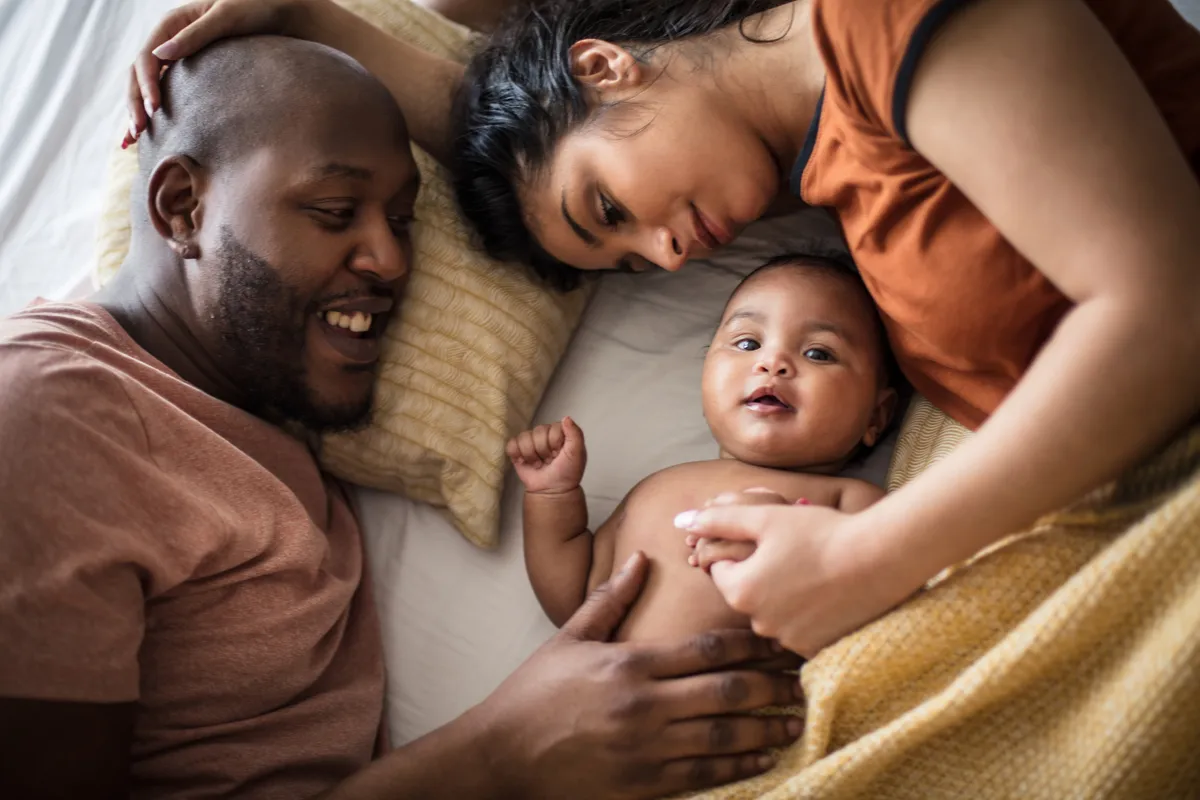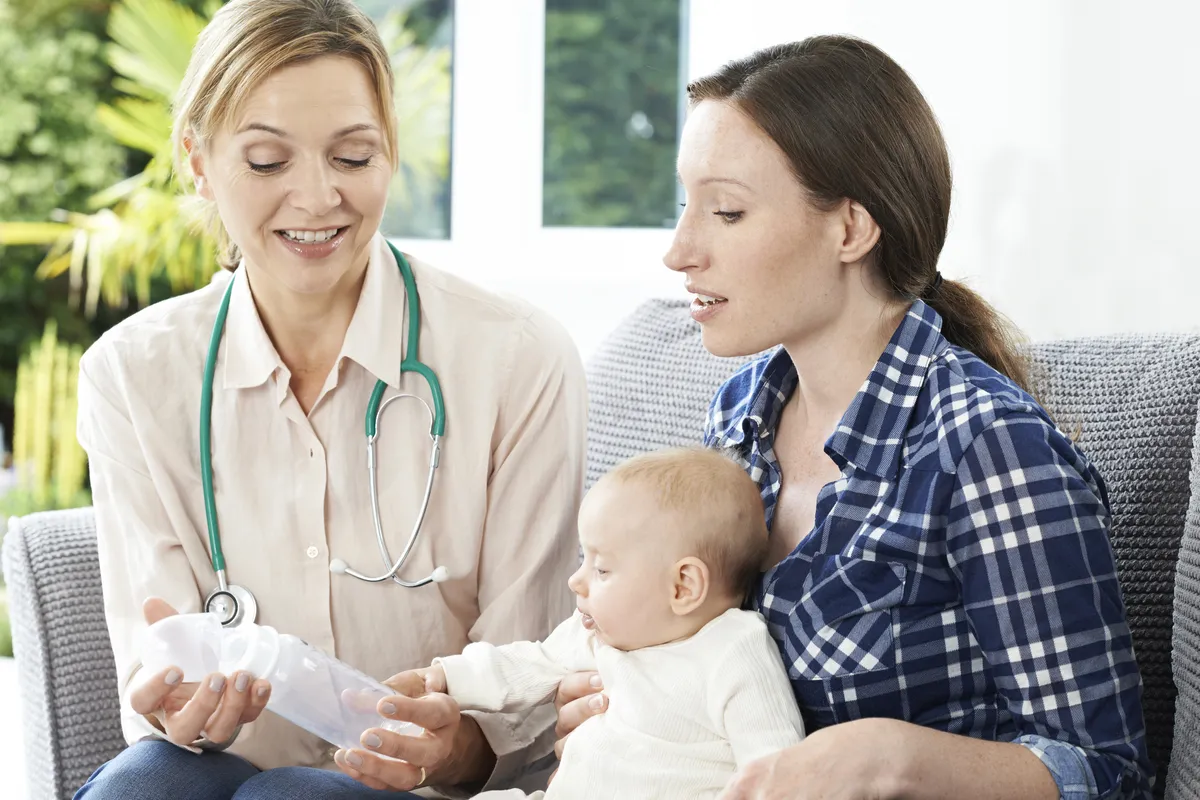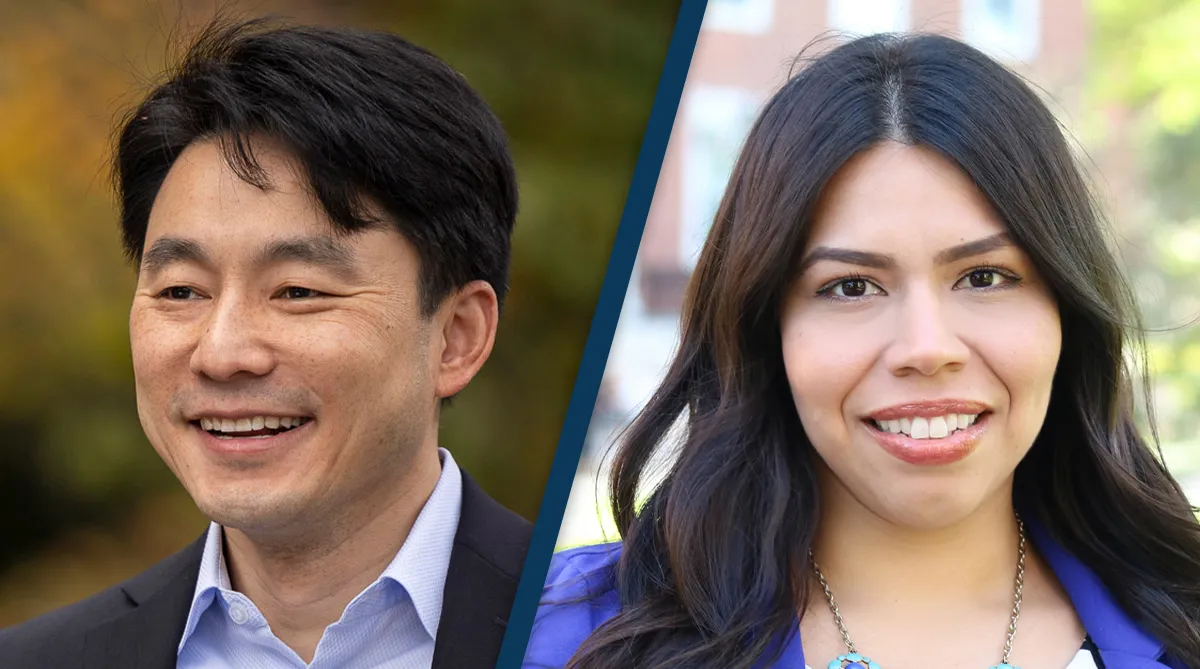👋 When I was a new mom with a background in public health and philanthropy, I was drawn to work at the Burke Foundation. I was impressed by its commitment to children and strategic investment in the health of young families. Our president, James Burke, and our trustees understand the role of — and need for solutions to — adversity in shaping young children’s health and, in turn, the health of families and communities.
One of the most intriguing approaches to addressing childhood adversity is Early Relational Health. What is it? It’s as simple to explain as it is crucial to the well-being of every child, family, and community: Nurturing relationships between caregivers and babies build a strong foundation for lifelong health.
With this issue of Starting Early, I’m pleased to share the release of Early Relational Health: A Review of Research Principles and Perspectives. This groundbreaking report funded by the Burke Foundation shows the promise of — and the science behind — Early Relational Health. The authors are Harvard University’s Dr. Junlei Li and Thelma Ramirez.
Read on for a deeper look at this topic and how to incorporate it into your work. And please join us for a webinar on December 7 to hear from our research team, parents, and sector leaders. You can register here to attend.
Atiya Weiss
Executive Director, the Burke Foundation
1 big thing: The science of Early Relational Health

Early Relational Health is about the positive, nurturing interactions between parents and caregivers and their infants and toddlers. These simple and ordinary moments take place in the daily routines of caregiving, play, and being together. And they make children and their caregivers healthier for a lifetime.
The science is amazing: Practicing Early Relational Health triggers changes to the adult brain that strengthen caregivers’ mental and physical health. These changes reduce symptoms of anxiety and depression and improve stress resilience and physical health. Brain and hormonal changes help prepare adults to become caregivers — and caregiving experiences reinforce the brain changes and strengthen parental capacity. 🧠💕
The why behind the what: From early childhood development to neurobiology, the field of Early Relational Health reflects the growing understanding of why positive relational experiences do so much for babies and their caregivers.
- Starting from their earliest days, babies’ brains begin to build crucial structures and pathways for emotional functioning.
- This emerging neural architecture is the base for attachment and emotional, social, language, and intellectual development later in life.
- Such caregiving experiences as gaze, touch, and voice align parents’ and babies’ brains with each other.
- These benefits contribute to a healthy immune system equipped to fend off disease.
The cost of inaction: Trauma, such as substance abuse, neglect, violence, and parental mental health challenges, is an unfortunate reality for families across all walks of life. It’s especially hard on very young children. And the downstream effects of childhood adversity cost the US economy a jaw-dropping $748 billion a year. Left untreated, children exposed to very high doses of trauma have triple the lifetime risk of heart disease and lung cancer and a 20-year shorter life expectancy. Stable, nurturing relationships help heal and protect families from adversity and can reduce costs in areas ranging from special education to incarceration.
The bottom line: Children are only half the story. It’s critical to invest in parents and caregivers to create the conditions that make it possible to build Early Relational Health.
2. Policies and interventions that work

Children and parents benefit when child care providers, healthcare professionals, and community services share the goal of enhancing Early Relational Health.
Families need more support: Reliable child care, paid family leave, a safe, affordable place to live and play, and nutritious food — they’re all crucial to Early Relational Health. But these resources aren’t distributed equally across neighborhoods and regions, resulting in disparities felt most along racial and economic lines. Meeting parents’ and children’s basic needs and taking stress off families is essential to engaging in responsive caregiving interactions.
Promising new approaches are helping to make Early Relational Health available to more people. They include:
- Redesigning pediatrics: A trusted source of information for caregivers, reaching 90% of families during well visits, pediatricians offer an ideal opportunity to advance Early Relational Health. Such initiatives as HealthySteps add a child development expert to the pediatric team to provide support on adapting to life with a baby, including connecting caregivers to community resources and early intervention. Mount Sinai Parenting Center trains the next generation of pediatricians to integrate the science of early childhood development into pediatric healthcare moments.
- Building family networks: An innovation called CenteringParenting creates networks of peers by bringing families with similar due dates together at their pediatric well-visits. The sharing experience strengthens knowledge of core parenting skills and provides connections to each other and local resources.
- There’s no place like home: Healthcare professionals visiting with new families, free of charge, within the first few weeks of a birth support parents in many ways. Guidance on bonding and connecting families with new resources helps relieve the physical, emotional, and economic stress that often stands in the way of parents being able to focus on nurturing.
- Make the most of community doulas: These skilled, nonclinical birth workers— who typically live in the area they serve — offer tailored emotional, physical, social, and educational support during pregnancy, childbirth, and after delivery, providing an important link to community care and resources.
- Engaging the village: Building Early Relational Health truly takes a village: a seamless web of people, institutions, policies, and services that support, educate — and even inspire — families. ⭐
3. Talking about trust with Dr. Junlei Li and Thelma Ramirez

In their new report, Early Relational Health: A Review of Research Principles and Perspectives, lead authors Dr. Junlei Li and Research Associate Thelma Ramirez, of the Harvard Graduate School of Education, pool their experience in early childhood education to provide a deep resource on Early Relational Health.
A key principle in their findings: Trust parents.
“We heard from experts at all levels about the importance of having faith that parents know what they’re doing, that they’re resilient, and that they were parenting before any professionals came into the picture,” says Thelma. “It’s about understanding that parents want to do what’s best for their children, that they have the capacity to parent, and that we as professionals are there as a partner to parents, in a supportive role.
“There are countless small interactions that pediatricians and other healthcare providers can have with a family to support Early Relational Health,” adds Junlei. “One thing may be how pediatricians talk with not just moms, but fathers as well. A pediatrician’s subtle gestures, and whether they turn to the father when asking a question, play a part in supporting Early Relational Health within that family and conveying this trust of both parents.”
But parents face barriers.
“I go back to those conversations we had with parents at all income levels, with different kinds of educational backgrounds and circumstances,” says Thelma. “Parents spoke about the importance of having their basic needs covered to be in a place where they could actually engage in responsive caregiving interactions.” One example: a parent who said, “You can tell me I’m a good parent, but how can I actually feel that about myself when I’m not able to make rent this month or when I can’t gather enough money for diapers?”
Some barriers relate to the way we think and talk about young children and families, and the lack of parental inclusion in our policies, adds Junlei. “If all we focus on is the child’s development and the child’s needs and we develop programs and policies based on that, then these programs and policies will — at best — be half effective. One of the values of talking about Early Relational Health is to outline a vision that allows us to think differently and design policies, programs, and services in a more connected way.”
Go deeper on the report findings in the full interview with Junlei and Thelma.
4. Tools you can use

Looking for new ways to connect with babies? Here’s some inspiration from experts.
- View this video from the Fred Rogers Institute to see Dr. Li and Dr. Dana Winters explain the importance of simple interactions.
- Parents magazine offers ways for caregivers to build a stronger bond with baby.
- A guide from Pregnancy, Birth & Baby, a site funded by the Australian government, has helpful hints to begin bonding, even during pregnancy.
- Listen to this podcast on the importance of supporting families featuring Dr. David Willis, a pediatrician and leader in the field of Early Relational Health who served as director of the Division of Home Visiting and Early Childhood Services in the Obama Administration.
The roundup
- Building bridges: Li, Kali Hackett of Children’s Hospital of Philadelphia, and Malkia Singleton Ofori-Agyekum of ParentChild+ will participate in a December 6 webinar, “The Power of Relationships to Foster Early Childhood Health and Development,” hosted by Philadelphia Health Partnership.
- Connecting the dots: Join Nurture Connection and the Burke Foundation December 7 for a webinar on the science and practical applications of Early Relational Health.
- Making a difference: ZERO TO THREE is hiring for a variety of positions dedicated to ensuring babies and toddlers benefit from early connections critical to their well-being and development.
- Banding together: Join the Maternal Infant Health Hub’s Midwifery Collaborative November 20 to discuss the importance of social media in raising awareness of midwifery and maternal health.
- Losing ground: A recent New York Times article shares startling news: At least 2 million children have lost Medicaid insurance coverage in 2023, putting them and families at risk of not being able to get care.
